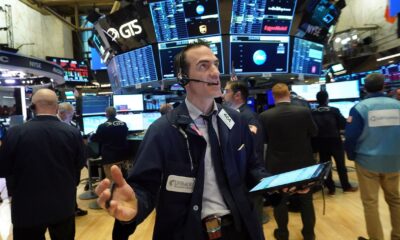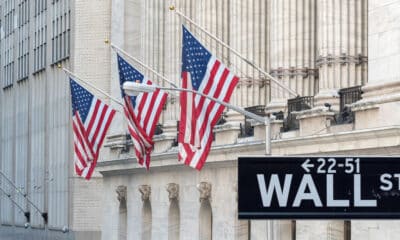Finance
WALL STREET: Asian Shares Edge Higher, Tracking Wall Street Rally
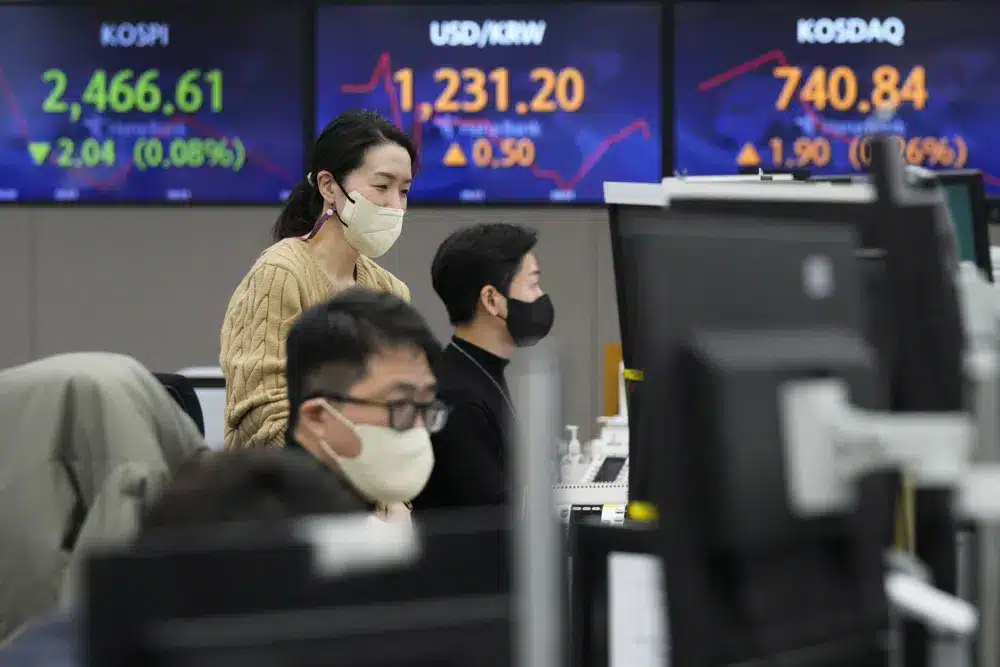
TOKYO, Japan — Asian stocks rose Friday, tracking a Wall Street rally fueled by reports that the economy and corporate profits may be doing better than expected.
In Tokyo, the core consumer price index rose 4.3%, slightly higher than the 4.2% expected and higher than the Bank of Japan’s 2% target.
“This seeks to challenge the central bank’s eventual policy shift, though the government’s energy subsidies next month could be used to delay any changes for the time being,” said Yeap Jun Rong, a market analyst at I.G., in a commentary.
The Nikkei 225 index in Japan rose nearly 0.1% in morning trading to 27,380.11. The S&P/ASX 200 index in Australia rose 0.5% to 7,503.50. The Kospi in South Korea rose 1.2% to 2,497.05. The Hang Seng Index in Hong Kong was unchanged at 22,571.58.
Shanghai’s markets remained closed for the Lunar New Year holiday.
Wall Street stocks went up to their highest level in almost eight weeks after the Commerce Department said that the U.S. economy grew at a 2.9% annual rate in the fourth quarter. This suggests that the economy will still be growing at the end of 2022, even though interest rates are going up and many people are worried about a recession. This exceeded economists’ expectations of a 2.3% increase.
Wall Street Getting A lot Of Earnings And Economic Reports
The S&P 500 rose 1.1% to 4,060.43, its highest finish since December 2. The Dow rose 0.6% to 33,949.41, while the Nasdaq rose 1.8% to 11,512.41.
Wall Street is getting a lot of earnings and economic reports, which could lead to more volatility. Markets have recently swung up and down as fears of a severe recession and a drop in profits compete with hopes that the economy can manage a soft landing and that the Federal Reserve will lower interest rates.
Other information On Thursday, factory orders for durable goods went up more than expected in December, and less people than expected applied for unemployment benefits the week before.
Strong data show that the economy can handle the Fed’s avalanche of rate hikes last year and at least one more expected next week without crashing into a deep recession. Higher interest rates are designed to slow the economy by making it more expensive to borrow money to buy a house, a car, or anything else on credit. They also cause stock and other investment prices to fall.
But if the economy is stronger than expected, especially in the job market, the Fed may have to keep rates high for longer to make sure inflation is really crushed. The Fed has repeatedly stated that it intends to do so until the end of the year, though many investors do not appear to believe it.
The Report Shows Good News
The 10-year Treasury yield, which helps set rates for mortgages and other important loans for the economy, increased to 3.49% from 3.45% late Wednesday. The two-year yield, which tends to track expectations for Fed interest rate actions more closely, increased to 4.18% from 4.13%.
At first glance, Thursday’s economic report seemed to be good news. However, it also showed some worrying signs of a slowdown. According to Megan Horneman, chief investment officer at Verdence Capital Advisors, it is also backward-looking.
“The first half of this year is going to be tough,” she predicted, citing recent weakness in the economy’s manufacturing and services sectors.
On the earnings front, news from some big tech companies gave people more reason to be optimistic a day after Microsoft’s forecasts made people worry.
Tesla went up 11% after the company that makes electric cars said that its profit for the last quarter was higher than expected. Seagate Technology rose 10.9% after reporting higher-than-expected revenue and earnings.
Steelmaker Nucor was also among the top-performing stocks in the S&P 500, rising 8.4% after exceeding profit and revenue forecasts by Wall Street.
Sherwin Williams Was On The Wrong Side Of Wall Street
Chevron rose 4.9% after raising its dividend and approving a stock repurchase program worth up to $75 billion. Both moves put money directly into shareholders’ pockets, which drew criticism from Washington. Instead, according to White House spokesman Abdullah Hasan, oil companies should “use their record profits to increase supply.”
Sherwin Williams was on the wrong side of Wall Street. It fell 8.9% after reporting lower-than-expected revenue for the most recent quarter. It also provided a profit forecast for the coming year that fell far short of analysts‘ expectations, as a weak housing market weighs on demand for paint.
Despite reporting profit and revenue that met Wall Street’s expectations, IBM fell 4.5%. Analysts pointed to some lower-than-expected numbers in terms of cash generation.
Southwest Airlines lost more money than expected in its most recent quarter, which was hurt by the fact that more than 16,700 flights had to be canceled last month. It also stated that it expects to lose money in the first three months of 2023.
On the New York Mercantile Exchange, benchmark U.S. crude rose 21 cents to $81.22 per barrel in electronic trading. On Thursday, it fell 14 cents to $81.01.
Brent crude, the international benchmark, rose 17 cents to $87.64 per barrel in London.
The U.S. dollar fell to 129.83 Japanese yen from 130.23 yen in currency trading. The euro is now worth $1.0877, down from $1.0890.
SOURCE – (AP)
Finance
Google And Apple Remove Binance from App Stores in the Philippines
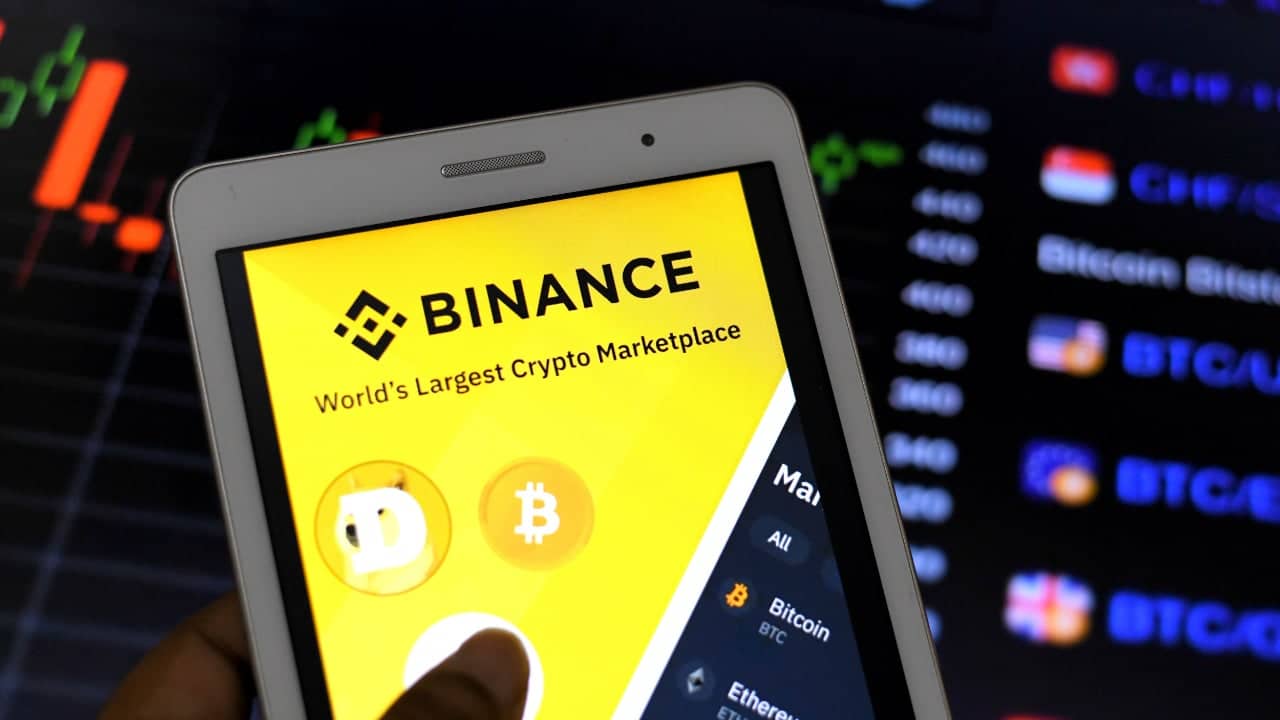
The Securities and Exchange Commission (SEC) of the Philippines to deactivate Binance from their app stores. A press release on Tuesday stated that the regulator had written to Google and Apple requesting that Binance-controlled applications be removed from the Google Play Store and Apple App Store.
According to Emilio Aquino, chair of the Securities and Exchange Commission, the public’s continued access to Binance’s websites and apps “threatens the security of Filipino investors’ funds.”
According to the agency, Binance operated as an unregistered broker and offered unregistered securities to Filipinos, violating Philippine securities laws. As of the time of this writing, neither nor Google nor Apple could be reached for comment.
According to Aquino, blocking from the Apple and Google app stores would help prevent “further proliferation of its illegal activities in the country and to protect investors from its negative economic effects.”
The National Telecommunications Commission of the Philippines has previously blocked access to website in the country.
Earlier this year, the SEC warned the public against using in the Philippines, and began examining the possibility of blocking Binance’s services there. According to the SEC, Binance has actively promoted its services on social media to attract funds from Filipinos, despite the fact that it is not licensed.
As a result, the watchdog is urging Filipinos who have invested to close their positions as soon as possible, or to transfer their crypto holdings to their own crypto wallets or exchanges registered in the country.
Richard Teng, formerly CEO of UAE regulator Abu Dhabi Global Markets, was appointed as Binance’s CEO following a settlement with the U.S. government that involves a $4.3 billion fine for alleged money laundering violations. In addition to the action,
Binance has been witness to a litany of woes recently.
Former CEO Changpeng Zhao has been charged with violating the Bank Secrecy Act and has agreed to step down. Zhao’s sentencing is scheduled for April 30.
Several lawsuits have been filed against by the Securities and Exchange Commission and the Commodity Futures Trading Commission regarding alleged mismanagement of customer assets and the operation of an illegal, unregistered exchange.
Business
Tesla wants shareholders to reinstate $56 billion pay package for Musk rejected by Delaware judge

AUSTIN, Texas – Tesla will ask shareholders to approve the reinstatement of a $56 billion compensation package for CEO Elon Musk, which a Delaware judge rejected earlier this year, and move the electric car manufacturer’s headquarters from Delaware to Texas.
In a statement with federal regulators early Wednesday, the business stated that shareholders will vote on both measures at its annual meeting on June 13.

Winipeg Free Press – VOR News Image
Tesla wants shareholders to reinstate $56 billion pay package for Musk rejected by Delaware judge
The Tesla board of directors offered Musk an unprecedented compensation plan that could be worth $55.8 billion over ten years starting in 2018, but Chancellor Kathaleen St. Jude McCormick ruled in January that Musk is not eligible for it.
Five years ago, a Tesla shareholder lawsuit argued that the pay package should be void because Musk dictated it and forged agreements with directors who weren’t impartial to him.
Musk announced a month after the judge’s decision that he would try to relocate Tesla’s corporate listing to Texas, where he has already relocated the company’s headquarters.
Almost immediately after the judge’s order, Musk moved Neuralink, his privately held brain implant company, from Delaware to Nevada.
Tesla met all of the operational and stock value benchmarks outlined in a 2018 CEO pay package, according to Chairperson Robyn Denholm in a letter to shareholders this week. She also stated that Musk has met the automaker’s growth expectations.
“Because the Delaware Court second-guessed your decision, Elon has not been paid for any of his work for Tesla for the past six years, which has helped to generate significant growth and stockholder value,” Denholm said. “That strikes us — and the many stockholders from whom we already have heard — as fundamentally unfair, and inconsistent with the will of the stockholders who voted for it.”
According to a regulatory filing, Tesla delivered 1.8 million electric vehicles worldwide in 2023. However, the value of its shares has dropped sharply this year as sales of electric vehicles fall.

CTV News – VOR News Image
Tesla wants shareholders to reinstate $56 billion pay package for Musk rejected by Delaware judge
Future growth is still being determined, and it may be difficult to persuade shareholders to support a large pay package in a market where competition has increased globally, and demand for electric vehicle sales is declining. Shareholders will also be asked to submit a nonbinding advisory vote on future CEO pay.
Tesla’s stock has lost over one-third of its worth this year as dramatic price cuts have yet to attract new purchasers. The business said it shipped 386,810 automobiles from January to March, about 9% fewer than last year.
Musk’s package was valued at more than $55.8 billion at the time of the Delaware court verdict, but the court may have cost the erratic CEO more than $10 billion due to the company’s stock decline this year. According to the report, Musk’s 2018 remuneration totaled $44.9 billion at the close of trading on April 12.
Since last year, Tesla has reduced prices by up to $20,000 on some models. The price decreases caused the prices of used electric vehicles to fall, reducing Tesla’s profit margins.
Tesla announced this week that it would lay off nearly 10% of its workforce, or approximately 14,000 individuals.
Following receipt of a report from a special committee under the direction of one board member, Kathleen Wilson-Thompson, Tesla’s board stated in the filing that it sought shareholder approval of Musk’s 2018 compensation package.

WHDH – VOR News Image
Tesla wants shareholders to reinstate $56 billion pay package for Musk rejected by Delaware judge
The board stated that if a significant vote is cast against future executive pay packages, “we will consider our stockholders’ concerns, and the compensation committee will evaluate whether any actions are necessary to address those concerns.”
Tesla Inc. shares, which fell another 8% this week, were marginally down in trade shortly after Wednesday’s opening bell.
SOURCE – (AP)
Finance
Why Gold Prices Are At Record Highs
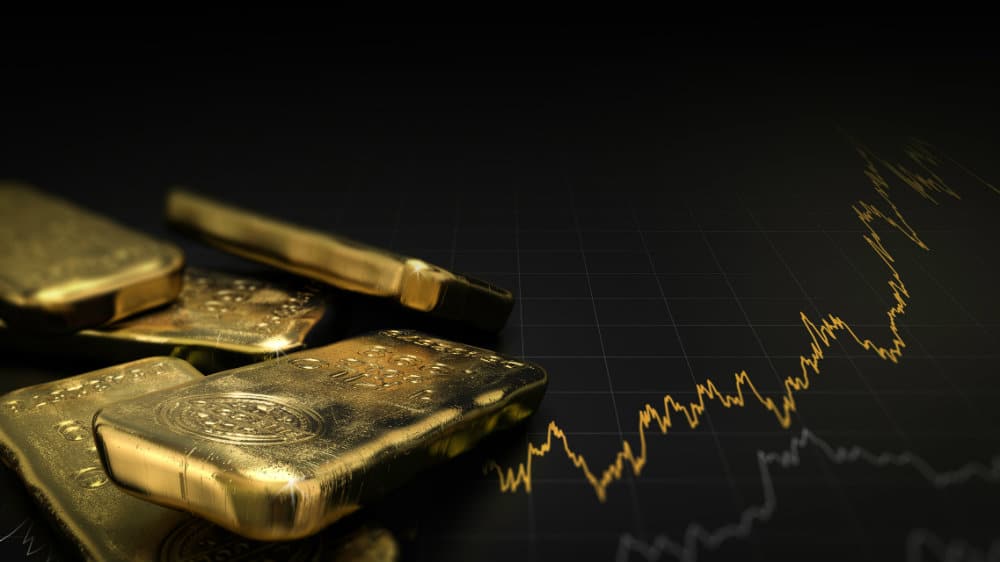
From central banks to Costco shoppers, everyone is purchasing gold these days. Spot gold touched $2,364 per ounce on Tuesday, following seven consecutive sessions of record highs and trading at $2,336 per ounce on Monday. Year on year, gold is up 16.5%.
Investors who expect the Federal Reserve to lower its benchmark interest rate are the primary drivers of price increases, but other factors, such as central banks buying gold, headed by China, to reduce reliance on US currency, are also contributing.
Why Gold Prices Are At Record Highs
Central banks view gold as a long-term store of value and a haven during periods of economic and international crisis.
Gold is regarded as a reliable investment. When interest rates fall, gold prices often climb, as bullion becomes more tempting than income-paying assets such as bonds. Investors also view gold as a hedge against inflation, anticipating that it would preserve its value as prices rise.
According to Reuters, the People’s Bank of China purchased gold for the 17th consecutive month in March, adding 160,000 ounces to its stockpile of 72.74 million troy ounces.
According to a UBS research note dated April 9, central banks may wish to “diversify away” from the US currency and acquire it in the face of geopolitical instability. Demand drives up prices as China expands its reserves, which traditional investors have already increased.
According to a Capital Economics research report published on April 9, Chinese investors are looking to gold as an alternative asset due to recent downturns in property valuations and equity prices.
Other central banks, including India and Turkey, are expanding their reserves. According to UBS, India’s GDP growth is fueling these acquisitions.
A sign of the times?
According to Ulf Lindahl, CEO of Currency Research Associates, central banks’ appetite for gold indicates a declining reliance on the dollar.
Lindahl said in an email that dollars are becoming increasingly undesirable to central banks seeking to reduce their economic dependency on the United States.
According to a March JP Morgan research note, nations not allies of the United States may accumulate gold to “mix away from dollars” and lessen vulnerability to sanctions.
According to the note, central bank purchases have fuelled the rise in gold prices since 2022. According to JP Morgan, gold may be entering a strong era, as central bank purchases of gold in 2022 were more than double the average annual buy over the previous decade.
The price increase coincides with US Treasury Secretary Janet Yellen’s visit to China to address financial stability in US-China relations and what Yellen refers to as Chinese electric vehicle overproduction.
Mark Zandi, chief economist at Moody’s, believes that rising oil costs threaten the US economy.
According to the UBS research report, higher oil costs are anticipated to raise inflationary fears, causing gold prices to rise.
The typical view of gold
The spike in gold prices indicates that investors expect the Fed to drop interest rates later this year, but they may be concerned about the prospects of containing inflation without causing the US economy to enter a recession, sometimes known as a soft landing.
According to an April 9 research note from UBS, the prospect of Fed rate cuts remains the primary driver of optimistic sentiment toward gold.
Fed Chair Jerome Powell said in remarks on April 3 that inflation remains on a “sometimes bumpy path” toward the Fed’s 2% target and that rate cuts to rebalance the economy are expected to begin later this year.
According to CME Group data, 51% of investors currently predict a quarter-point decrease in June. However, employment growth in March exceeded projections, casting doubt on the need for numerous rate reductions in an economy that remains strong.
The Personal Consumption Expenditures price index, the Fed’s favored inflation gauge, increased 2.5% in the year ended in February. According to Department of Commerce figures issued this month, this represents a little uptick from the 2.4% increase in January.
The core PCE price index, which excludes the more volatile food and energy sectors, increased 0.3% monthly. Fed officials consider the index a key indicator of underlying inflation, and it fell from 0.4% in January when it increased at the strongest rate in a year.
So, why is gold soaring right now?
Some investors are buying into the frenzy around gold bullion as prices increase, pushing them further. On Reddit, proud buyers frequently create threads touting their collections.
Costco started selling bars online in August and silver coins in January. Wells Fargo estimates that the corporation currently sells up to $200 million in gold and silver per month. Chief Financial Officer Richard Galanti told analysts in December that the company had sold over $100 million in gold bars in the previous quarter.
The investment note, released on April 9, stated, “The accelerating frequency of Reddit posts, quick online sell-outs of product, and [the company’s] robust monthly eComm sales suggests a sharp uptick in momentum since the launch.”
Lindahl stated that “trend followers” and others capitalize on price increases as the long-term trend indicates much higher costs.
It’s also worth mentioning that gold has historically been a haven during political turmoil. Voters in almost 60 countries, including the US presidential election, will go to the polls this year. The increase in geopolitical and economic volatility highlights the value of precious metals.
SOURCE – (CNN)
-
Celebrity5 months ago
Shane MacGowan, Lead Singer Of The Pogues And A Laureate Of Booze And Beauty, Dies At Age 65
-
Entertainment5 months ago
Robert Downey Jr. Won’t Be Returning To The Marvel Cinematic Universe As Tony Stark
-
Politics5 months ago
Former US Secretary Of State Henry Kissinger Dies Aged 100
-
Politics5 months ago
Unveiling the Power and Influence of The Conservative Treehouse
-
Celebrity5 months ago
WWE Hall Of Famer Tammy ‘Sunny’ Sytch Sentenced To 17 Years In Prison For Fatal DUI Crash
-
Sports4 months ago
Saints’ Aggressive Play-Calling Ends Up Coming Back To Hurt Them In Loss To Rams





